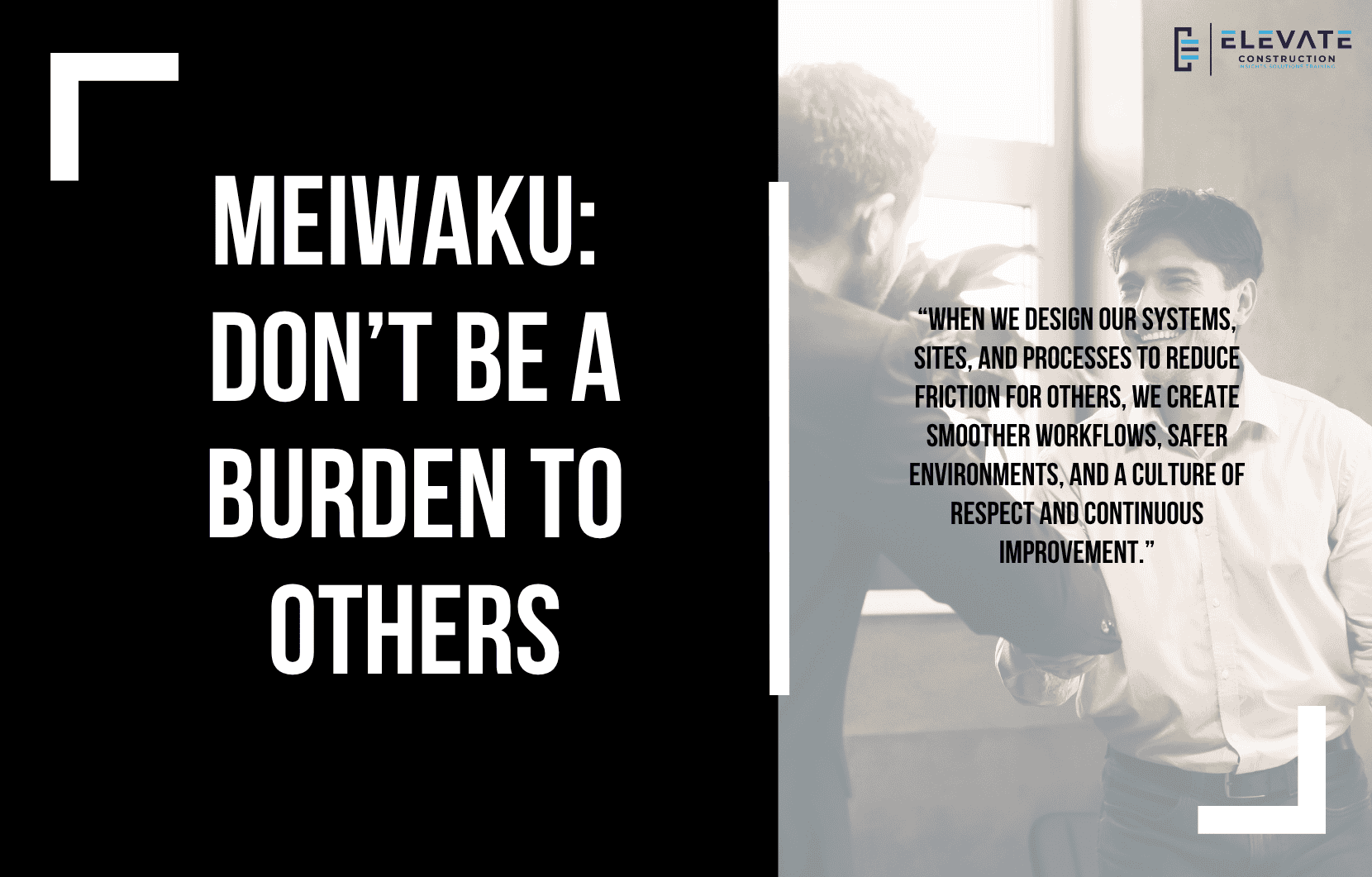Meiwaku: Don’t Be a Burden to Others
In this blog, I want to share a powerful Japanese concept that completely changed how I look at teamwork, design, and human interaction, both in life and in construction. It’s called Meiwaku, which means “don’t be a burden to others.”
This simple mindset can completely transform the way we work together. When applied to lean construction, Meiwaku reduces friction, improves flow, and helps create systems that truly serve people instead of making their work harder.
The Lesson from Japan
When I visited Japan, I saw how deeply ingrained Meiwaku is in their culture. On trains, people stand to one side so others can pass. Nobody talks loudly, plays videos, or disturbs others. Every action shows consideration. From escalators to cash registers, everything is designed to create flow and eliminate friction.
In contrast, many of us in the U.S. myself included often act without awareness of how our behavior affects others. Whether it’s standing in someone’s way, blocking a doorway, or overloading others at work, we don’t always realize the burden we create.
The Problem in Construction
In construction, this mindset shows up everywhere.
We say things like:
- “I don’t have time to finish that detail; the crew will figure it out.”
- “We can skip that planning meeting; they’ll manage.”
- “We’ll just use ladders instead of the right lift.”
But every time we make choices like that, we’re placing the burden on someone else. And that friction adds up.
Imagine instead if we designed everything from site logistics and trailers to hoists and crane paths to allow people to move easily, work safely, and find what they need without obstacles. That’s what Meiwaku looks like in action.
Applying Meiwaku in Lean Construction
In lean, every trade is both a supplier and a customer. Before passing a zone to another trade, ask:
- Is it clean and swept?
- Is it fully demobilized and inspected?
- Are boundaries clear and substrates ready?
- Have I done proper quality control?
When every team operates with this mindset, we create systems that respect people, prevent rework, and make work meaningful.
The Benefits
If we truly embraced Meiwaku in construction, we’d see:
- Safer, more respectful job sites.
- Easier navigation and clearer signage.
- Systems that support foremen, trades, and workers.
- Less clutter, fewer hazards, and more collaboration.
- Greater efficiency, quality, and care across every level.
When everyone focuses on not being a burden to others, we create a culture of flow, empathy, and shared responsibility.
The Challenge
So, here’s my challenge to you:
What’s one thing you can do tomorrow to reduce friction for someone else whether it’s a coworker, a client, or even a passerby?
If we each take responsibility for not being a burden, we won’t just build better projects. We’ll build a better world.
Key Takeaway
Adopting the mindset of Meiwaku “don’t be a burden to others” can completely transform how we work in construction. When we design our systems, sites, and processes to reduce friction for others, we create smoother workflows, safer environments, and a culture of respect and continuous improvement.
If you want to learn more we have:
-Takt Virtual Training: (Click here)
-Check out our Youtube channel for more info: (Click here)
-Listen to the Elevate Construction podcast: (Click here)
-Check out our training programs and certifications: (Click here)
-The Takt Book: (Click here)
Discover Jason’s Expertise:
Meet Jason Schroeder, the driving force behind Elevate Construction IST. As the company’s owner and principal consultant, he’s dedicated to taking construction to new heights. With a wealth of industry experience, he’s crafted the Field Engineer Boot Camp and Superintendent Boot Camp – intensive training programs engineered to cultivate top-tier leaders capable of steering their teams towards success. Jason’s vision? To expand his training initiatives across the nation, empowering construction firms to soar to unprecedented levels of excellence.
On we go

